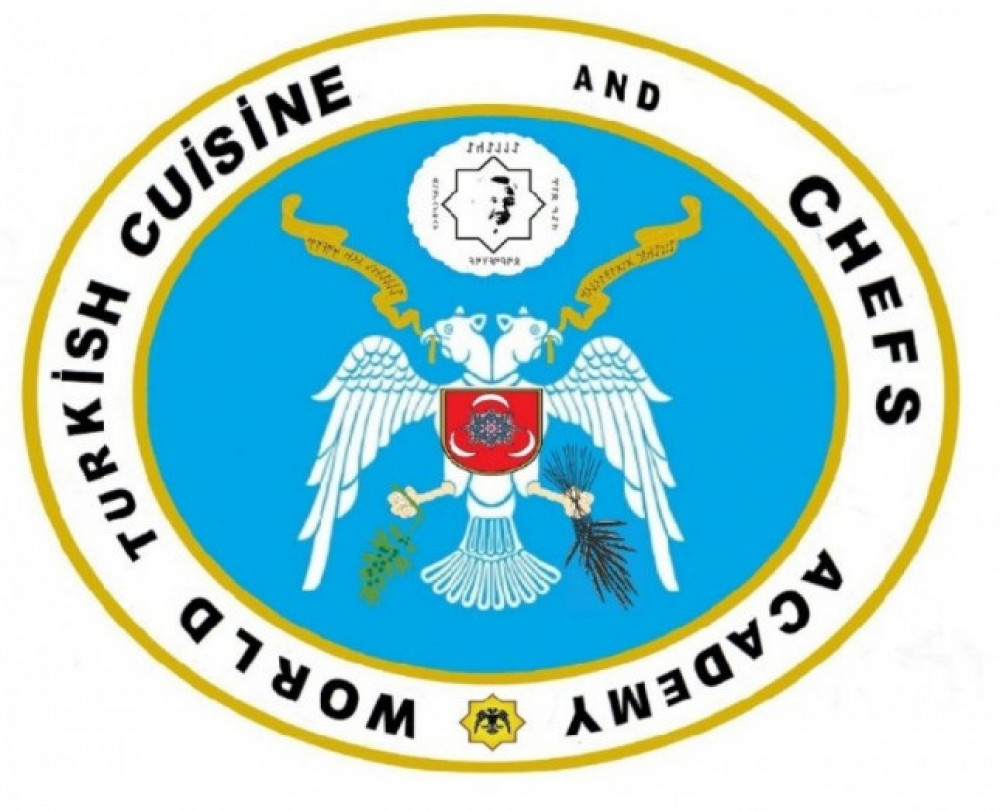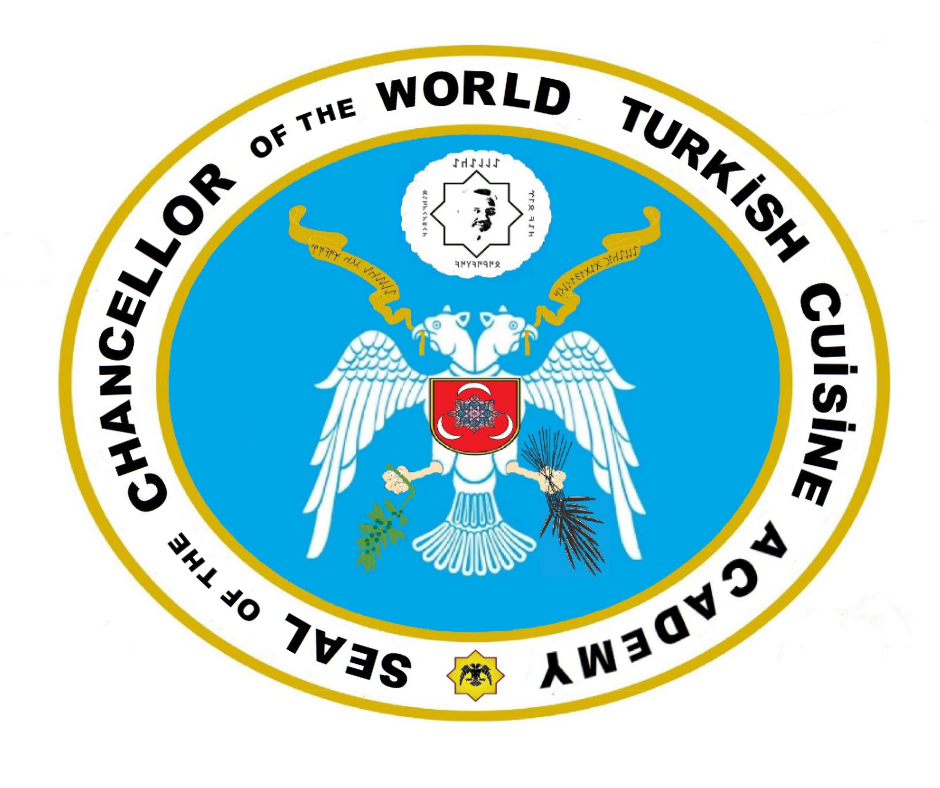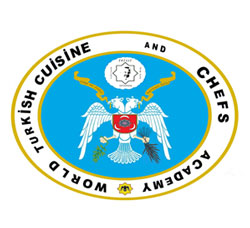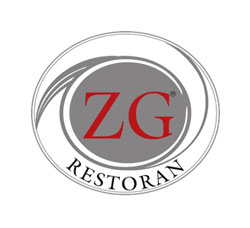
BİLGİ: Türkçe için Lütfen Buraya Tıklayınız
WHAT IS ISLAMIC CUISINE-CULTURE AND WHAT IS NOT
WORLD ISLAMIC CUISINE HERITAGE LIST
ISLAMIC WORLD CUISINE HERITAGE LIST

The religion of Islam has regulated important issues on the eating habits or preferences of people who have accepted Islam, as well as in all areas of their lives. The concepts of halal and haram take place in the first place in terms of eating and drinking. Just like in earning and in many areas of life; There are halal and haram concepts for Muslims in terms of eating and drinking. People who have accepted Islam are obliged to take care of what they eat and drink, taking these concepts into account.
In these matters, similar to the concept of halal food in the religion of Islam, people who believe in Judaism give importance to the consumption of kosher food according to their own beliefs. Of course, there are clear differences between halal foods and kosher foods. In fact, some Muslim imams may state that kosher-marked foods can be consumed when you cannot find halal food.
The religion of Islam uses the concept of halal for meals and foods as an indicator of conformity for Muslims. In Judaism, on the other hand, the concept of kosher is used as an indicator of conformity for foods.
The most widely known issue as a similarity between halal and kosher is that pork cannot be eaten in either. In other words, the prohibition of pork in both beliefs is the most well-known similarity. In addition to pork and its products, Jews do not consume rabbit or camel meat. Rabbit and camel meat is also not kosher and is prohibited. On the other hand, Muslims can consume camel and rabbit meat as halal. In general, it is also the case that male rabbits are preferred in Islam. Of course, the meat of a female rabbit is also considered halal in Islam. However, since the necessity of paying attention to the menstruation status of the female rabbit, the preference of the male rabbit has emerged. On the basis of this, it is easier to prefer the male rabbit than to be sure about the menstrual status of the female rabbit. 1
Especially those who can make statements on matters that concern Muslims, "When there is no halal product, turn to kosher products." It is necessary not to rely on statements in the form of statements or any similar sensations. Not every kosher food product suitable for Jews can qualify as halal food for Muslims. For example: Consumption of meat seasoned with wine in Kosher foods is suitable for Jews. However, halal meats and food products that can be processed or mixed with products considered haram in Islam are also considered haram and cannot be classified as halal food. While alcoholic products can also be found in kosher, they are not suitable for Muslims, they are prohibited and considered haram. On another issue, while looking at the source of the products in order to qualify halal foods as halal; Regarding the suitability of kosher products for kosher, the source of the food may not be considered. For example: while different processed products from pork, such as gelatin, are not considered halal food, they may be suitable for kosher. Similarly, the source of yeast in kosher products may not be taken into account. From this point of view, we can understand the following: The fact that pork is considered forbidden and haram in both faiths does not mean that every kosher product can be consumed in accordance with halal food for Muslims.2
To give another example: Products obtained from an animal whose meat is halal for Muslims, in a way that does not comply with Islam, is not considered halal. We can expand this example as halal income in terms of Islam and generalize it as food products obtained with halal income. Starting from this, we can reach the following: Food products obtained by earning in a way that does not comply with the religion of Islam can also be considered suitable for kosher and consumed by Jews. But everything that is obtained in ways that are considered haram in Islam is not halal for Muslims.
Now, based on what I have written above, I would like to make some evaluations on important issues.
Even though people who believe in the Christian religion have some eating and drinking traditions or habits according to their own beliefs, they do not show as clear as Muslims' halal food preferences and Jews' kosher food preferences. For Christians, studies on monastic culinary culture are generally available. However, in Christianity, there are no religiously determined rules for Christians, as in halal food or kosher food.
The basis of studies that concern the culinary culture of nations through religion or studies named religiously is very important. Especially in terms of Islam, there may be studies that are never based on our holy religious book or our prophet. Or even studies that do not contain enough information about İslam, but are called Islamic cuisine, Islamic food culture can be done. It is important for Muslims to make in-depth inquiries and research on these issues.
In general, made-up-fictional recipes created by using religions over different religious terms or beliefs can be included in some studies. In fact, the recipes belonging to the culinary cultures of different nations can be completely or partially given a religious name, and the religious feelings of the society can be exploited and financial gains can be achieved by collecting benefits over this. I think you will understand what I mean by this much better with the examples I will include in the later stages of my writing.
In this context, what is the most important thing you need to acquire, especially in a religiously based study? Of course it is the source. For the religion of Islam, this source is, of course, first the Qur'an and then the authentic hadiths of our Prophet Muhammad (PBUH). In these, it is already clear in the source about food. In this regard, studies written with the source are very important. It is also clearly evident that the works created by those who have done these studies with all the resources that should be duly. These are easily understandable. It is necessary to never give credence to religious-based cooking studies or books created with fictional recipes of uncertain origin. It is not difficult to understand that such works are generally done for certain benefits and gains over religions. That's why they shouldn't be trusted. However, those who have done these studies can mislead the society spiritually, that is, religiously.
In particular, studies with a religious basis in food have a definite scope and boundaries on food recipes. Although they are based on religion, we need to distinguish the works of those who have uncertainty in the information they give in their work. Again, it is very important to look at the clear, trustworthy and reliable source of the recipes that may be included in these studies, if any, to which they can be associated. If unsourced adaptation-fiction recipes are presented to the society on the basis of religion, or let's some people say that "Prophet of İslam liked it, and this recipes are suitable for you” here we come across unethical situations in many areas.
All of the religion-oriented food studies, whose basis and clear source cannot be found, are fiction and fake. To give an example in the same context: For example: "The Prophet of Islam liked this dish, then this recipe would be good for you because it is among the foods that the prophet loved." It is never right to say this or to take such attitudes which possibly mean selling food to others in restaurants. It is also never true that the recipes created in restaurants as I have mentioned above are marketed and sold through religions. The foods that are rumored to have been eaten by our Prophet or what the meals were should be expressed by the sources. It is clear in the sources that should be taken as the basis for these.
The fiction recipes that are based on the foods that the Prophet ate or loved, and commercialization by including the Prophet's some known favourite foods and marketing these under different food recipes through religion: These are religious commerce.
One of the important works about the cuisine of our Prophet, namely Islamic cuisine, is the book study called Rasûlullah's Table, written by Ms. Ulku Mensure Solak years ago, based on the Qur'an and Hadith. The sources of this information are also clear in the important source information written in this book. As Turkish Cuisine, we should thank Ms. Ulku Mensure Solak for bringing us such an important resource. Because such important studies show us very clearly what Islamic cuisine is and what it is not. Such important studies, based on accurate and reliable sources, also reveal those who try to gain benefits over the religion of Islam. Again, such important studies radically refute the perceptions that may be formed against our culinary culture in terms of eating and drinking, as well as those who may want to exploit religion and emotions in order to gain benefits from the religion of Islam. For such reasons, the work of Ms. Ulku Mensure Solak's work is very important for the Muslims of the world, but also it is a very important work to reveal and identify those who may want to harm Turkish cuisine through the exploitation of religion.
Before spending your money on people you think they have written a new book based on a few books written in the past, or on the fake-fictional meals they have created on the basis of religion in their possible restaurants; it is necessary to prove the subjects that these people have mentioned in their books, with the sources. Those who take advantage of religion and create fake-fictional recipes, they can never prove them scientifically from sources.
Those that can be presented to you by certain groups or some networks are actually presented to the society, inspired by the work of real jewels. Those who have truly done jewel level work which is of great importance; unfortunately, they are deliberately left in the shadow of certain people with their work. While the works that should be published on television and in the newspapers are almost never shown, the works of those who do not even know how to write a book, can be presented to the society as if they are successful, and even some undeserved awards can be given to these people by certain groups. While the owners of works that have the quality of jewelry level stand behind the scenes, those who imitate them or copy them upon similar issues inspired by their works are unfairly brought to the fore. While these cannot be considered as authorities on related issues, they are presented to people as authorities. In fact, those who have done the first studies in their fields and those who are authorities on related issues are deliberately ignored; those who can claim that their work is the first in its field are marketed to the society with the support of certain media.
I think it is necessary to be awake against those who are said to have written religious-based cookbooks, especially with information that can be adapted from some previously written books, exploiting your religious feelings as well as your pocket. Because the frame-limits of the subjects that will deal with the Islamic Cuisine or the table of our Prophet is always clear.
Do not allow those who write books on the same subject or with no related interest and write books with fake-adaptation-made-up recipes just to have written a book on the same subject, or those who can make exploits on religious subjects. Do not allow those who can put their hands in your pocket by exploiting your religious feelings. While the average prices of the books that are really credible on these subjects are determined for the benefit of people; The books, which can be presented to you by publishing houses at exorbitant prices in partnership with popular names of well known groups of people, were originally created for certain purposes. At the beginning of these purposes, there is the gathering of benefits through religious belief.
Why would it not be right to consider the recipes of meals and desserts, including local dishes of a national cuisine culture, with the names of books that have a religious basis, as Islamic Cuisine-Jewish Cuisine-Christian Cuisine, just for writing a book? If you continue reading, I will answer that below. You will be able to understand this answer very easily from the examples I will give and the whole of my article.
For example, those who have used terms such as “Islamic Cuisine, Islamic Cuisine Culture-Jewish Cuisine, Jewish Cuisine Culture-Christian Cuisine, Christian Cuisine Culture” and used to publish as book with those name in past: Those who have used such terms in foreign languages mainly use the Quran for Islamic Cuisine, the Torah for Jewish Cuisine and the Bible for Christian Cuisine. Again, these studies differ between them, in addition to the holy books that each one accepts and believes in their own fields. Of course, as one of the prophets of Allah, for the İslamic culinary culture is Muhammad (PBUH), for the Jewish-Jewish culinary culture, is Moses (PBUH) and for the Christian cuisine culture is Jesus (PBUH). This has to take place for each religion based culinary work.
If we think logically, the variety of dishes in ancient times was limited and less incomparable with today's. If I make an assessment about those ages apart from the miracles given to the prophets: I think that I can logically use a definite statement that famine and poverty were inevitably dominant in times when technological opportunities were very limited, along with disasters.
From this point of view, it can never be said that almost most of the prescriptions included in the studies created with religious names can be based on religion, with certain exceptions. The meals or recipes here are measured in accordance with the principles of halal food. This has to be like this. For example: Can we include a French cuisine dish with its name in the Islamic Cuisine book? Or, can we evaluate a recipe in the food culture of a Muslim French within Islamic Cuisine? Answer: If we reconsider the recipe in accordance with halal methods with Islamic belief; yes, it is even possible to consider French Cuisine completely within the scope of Islamic Cuisine. It is possible to adapt the dishes of all foreign cuisines to Islamic cuisine with a meat or food that is halal in Islam.
So in foregin cuisine's dish that made with pork which is haram in Islam, we can convert this to helal lamb meat and dish becomes helal and can be consider under İslamic cuisine. But how true would it be to do this when we consider the basis of the religion of Islam and the basis of Islamic cuisine… Here is where the real issue begins.
It is possible to address the same questions, for example, from the perspective of Turkish Cuisine, by asking them for Jewish and Christian Cuisine. In other words, can we put a dish belonging to Turkish cuisine, together with its own name, in the Jewish or Christian Cuisine book? Or, can we evaluate the recipe of a Christian or Jewish Turkish food culture within Christian or Jewish cuisine? Answer-1 for Christian Cuisine: If we reconsider the recipe in accordance with the Christian belief and the methods applied by the Christians; Yes, it is possible to deal with Turkish Cuisine by evaluating it entirely within the Christian Cuisine. In other words, a Christian can go out and describe the entire Turkish cuisine as Christian Cuisine and position the food and dessert recipes of Turkish cuisine in the work he/she will create about Christian Cuisine or in the book she / he will write. Can she / he even cook the dishes prepared with the recipes in Turkish cuisine, with their traditional names, even with pork, and use the same traditional name according to his / her own beliefs? I think the answer to this would be as follows: If we consider national cuisine cultures and the recipes belonging to these cultures only according to our religious beliefs and evaluate them under the name of the cuisine of the religion we belong to; This time, those who have different religious beliefs can adapt the recipe of each national cuisine culture according to their own religious beliefs, as I have included here. If we do not really know what is at the basis of the cuisines to be named with religious beliefs; A Christian Turk can come out and make the Hunkar Begendi (Turkish sultan's favorite dish) with pork and put it into the work she / he will create for the Christian cuisine. But how ethical would it be to do this when we consider culinary cultures on the basis of religion… I think the important issue here is respect for cultures belonging to nations. Of course, the dishes belonging to the nations are also associated with the beliefs of those nations. In other words, foreigners and non-Muslims know very well which meats are at the core of the Turkish cuisine, Hunkar begendi liked with what meats, and that it is related to the religion of Islam. Again, foreigners know very well that the orders of the Islamic religion are at the forefront of the preparation of Turkish cuisine. A subject that is already well known to foreigners should not be handled in a way that would harm Turkish cuisine. I think that it would not be a correct approach to divide the recipes of the world's national cuisines in terms of culinary arts and divide them according to the religions of the societies. Again, I think that it is not right to create fake-fictional food recipes based on religion, in a way that will not be based on the source, and that can include the Prophet. Here, I think the right approach should be: The recipes of the nations of the world can only be evaluated in terms of their compliance with religious beliefs and principles. This should be left to one's own freedom of belief and spirituality only after presenting the right information to people.
If we consider food recipes according to religious beliefs; then, people of all faiths can write the dishes they have adapted to their own religion in a book by naming them with the name of the religion they believe in. People of different ethnic origins who belong to the Jewish, Christian faith can interpret this, as well as foreigners belonging to the Islamic faith, such as Muslim French, can adapt their national cuisine culture to their own and adapt the dishes according to İslam religion. But when they do this, they cannot develop different discourses for the dishes they adapt, based on the products they contain. For example: “Our prophet used to recommend and eat what is mentioned in this recipe. Then eat it for yourself. It will benefit you.” Etc. They cannot produce such discourses and present them to the society. They can't create fictional french cuisine recipies without source which is not based on Quran and Prophet of İslam. If they offer it and make it a method of earning for their own benefit, it will never be ethical or moral. It can never be said that this has a place in the religion of Islam.
What happens when nations interpret their cuisines through beliefs in this way, what can happen? In my opinion, the main focus is moved away from the subject and everything that concerns the subject gets out of control.
The main principles of eating and drinking cultures through religions are clear. In this article, I will try to touch on the basis of religious eating and drinking principles and culinary cultures as much as possible. Going beyond these principles and adopting an attitude as if to abuse the values in the eating and drinking cultures of different nations through fanaticism in religious matters will not be the right approach in terms of national cuisine cultures. Because in every nation there are people who belong to different faiths. In this case, every believer can, according to himself, book the same dishes as their own religion and call it Islamic, Christian or Jewish cuisine. Of course, there are some exceptional recipes for their own reasons, and they are purely Islamic, Christian, and Jewish recipes with recognized special meanings. However, their limits and basis are already clear. The most important issue here is the basic concepts to be discussed while evaluating the issue of eating and drinking through religion. These basic concepts and issues are clear for every religion. And the book named Rasûlullah's Table that was written by Ms. Ulku Mensure Solak for the cuisine of the Islamic religion, is a very important fundamental work that will enlighten people in every sense.
Can we evaluate the food recipe of a Christian or Jewish Turk, which I asked above, in Christian or Jewish cuisine? My second answer to the question is as follows: I will evaluate Answer-2 from the same frame-limit within Judaism. Answer-2 for Judaism: If we reconsider the recipe in accordance with Judaism, as well as the methods applied by Jews according to themselves; Yes, it is also possible to deal with Turkish Cuisine by evaluating it entirely within the Judaism-Jewish Cuisine. In other words, someone who is Jewish can describe the entire Turkish cuisine as Jewish-Judaism Cuisine and position the food and dessert recipes of Turkish cuisine in the works she / he will create about Judaism-Jewish Cuisine or in the book she / he will write. But how ethical and correct would it be for her / him to do this…
What do you have to understand from all my assessments?
Of course, everyone will make an inference according to himself-herself, she-he should. Even by making in-depth analysis, everyone should strive to make all the necessary inferences which I may have overlooked and unnoticed by thinking multi-dimensionally.
In fact, we can easily understand that the subject of Islamic Cuisine covers the issues related to food and beverages, mostly based on religious decrees. In other words, based on the Qur'an and the accurate hadiths of our Prophet Muhammad (PBUH), the principles of the issues regarding which foods and beverages are religiously appropriate for Muslims in the processes from production to cooking are clear. Again, together with the foods mentioned in the Qur'an, all the topics that may be related to the foods that our Prophet Muhammad (PBUH), loved to consume and recommended to people are at the center and in the center of Islamic Cuisine. The central frame and limits of this foundation is also clearly evident. The only concern of those who want to go beyond this is the benefits that they will only gain unfairly.
While the basic centers of Islamic Cuisine or cuisines characterized by religious names are clearly and unmistakably clear; It is always necessary to be aware of those who benefit from religion or religious beliefs or who may benefit themselves in the future. Because the culinary understanding of those who will center religions will necessarily vary relatively according to their own religions of those who have different religious beliefs. According to their religious beliefs, every person can evaluate the food recipes of the culinary cultures that are suitable for the center on basis of belief .
For the related reasons I have given here, it was necessary to clarify all the points I have mentioned above. If there are issues that you think I have not mentioned or that I may have unnoticed or missed; I would like you to convey these issues to our friends. If you have any questions, please send them to us.
The points I have mentioned here are important for people who is sane. And I think that it is of great importance for those who want to learn about religious-based culinary culture in the future.
In order to distinguish all groups that deal with culinary culture studies, including Islamic Cuisine and religious culinary terms related to religious issues, according to their own interests-benefits (to identify abusers based on religion),
In order to fully distinguish those who exploit religion-emotion in terms of Turkish culinary arts and culture, today and in the future,
In addition, in order for all people to reach the most accurate sources, information and studies on all the issues I have mentioned above;
The creation of the Islamic Cuisine Heritage List, the World Islamic Cuisine Heritage List, or in other words the Islamic World Culinary Arts Cultural Heritage List, has become a mandatory requirement.
Presenting this list to the world's humanity is first and foremost important for all Muslims in the world. Again, I think that this list will provide important benefits to Muslims in general, as well as make important contributions to those who want to learn about food and drink while learning the religion of Islam, or those who may want to become a Muslim. The works to be included in this list will provide the most accurate information on many issues such as what a Muslim should pay attention to in terms of eating and drinking, which sources she / he should look at, and whom she / he should take as an example.
This list, which will make important contributions to Islam, is also important for all people in the world in many respects.
Presenting the World Islamic Cuisine Heritage List to people is also a requirement of our professional responsibility.
On behalf of Islamic Cuisine and Culture, I would like to thank the authors of the works in this list and those who contributed to their work.
I pray to Allah the Almighty that the World Islamic Cuisine Heritage List will be beneficial for all people.
Tolgahan Gulyiyen
World Turkish Cuisine Academy – Turkish Cuisine Resurrection Movement
Chancellor & Founding President


PDF BACK UP: https://drive.google.com/drive/folders/1GcXF4hIZgnjxyji82Jor63PFcqkUow5D?usp=sharing
FOOTNOTE:
- 1-( See: About the Rabbit: Book of Rasûlullah's Table -62nd Page / About the Camel: Book of Rasûlullah's Table-Pages 57-58, Ulku Mensure Solak)
- 2- ( *- https://www.sistempatent.com/belgelendirme/gida-belgelendirme/kosher/kosher-ile-helal-arasindaki-farklar.aspx#:~:text=%2D%20Kosher%20ile%20Helal%20Aras%C4%B1ndaki%20Farklar%20Payla%C5%9F&text=%C2%BB%20Kabuklu%20deniz%20%C3%BCr%C3%BCnleri%2C%20tav%C5%9Fan%2C,bak%C4%B1lmaks%C4%B1z%C4%B1n%20jelatin%20ko%C5%9Fer%20kabul%20edilir.
- *- https://helalraporu.com/islamiyetteki-helal-ile-musevilikteki-kosher-farklari/ )
- https://www.youtube.com/watch?v=pqZvnOJtRSw
Ek Dosyaları İndir
- WHAT IS ISLAMIC CUISINE-CULTURE AND WHAT IS NOT-ENGLİSH (746 İndirmeler)






